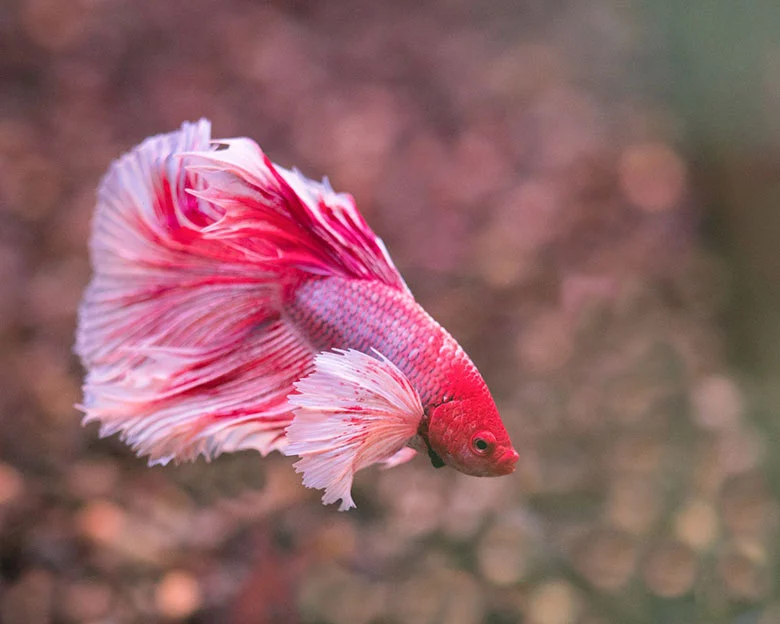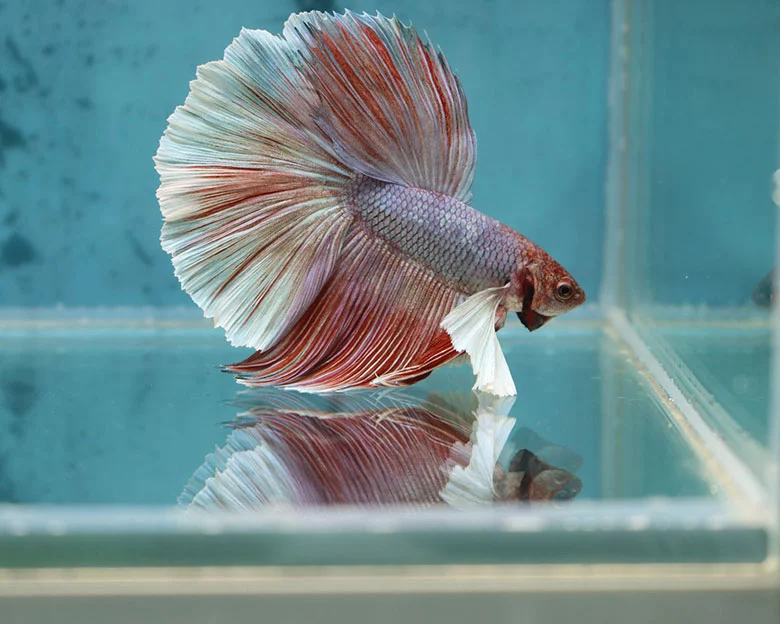If you’re a betta fish owner, you know how important it is to keep your fish healthy and happy, especially when it comes to addressing issues like inflamed gills in betta fish. After all, these vibrant little creatures bring joy and companionship into your life. But what happens when you notice your betta fish’s gills are inflamed?
This common ailment can be caused by a variety of factors and can lead to serious health problems if left untreated. In this article, we will explore everything you need to know about betta gills in danger: symptoms, treatment, and prevention.
First and foremost, understanding the importance of respiration in your betta fish is crucial. Betta fish, like all fish, rely on their gills to extract oxygen from the water. When their gills become inflamed, this process is disrupted, leading to serious health problems.
It’s important to be able to recognize the symptoms of inflamed gills in your betta fish and take action to treat the underlying problem. Additionally, taking steps to prevent the inflammation from occurring in the first place is key to keeping your betta fish healthy and happy.
So, let’s dive into the causes, symptoms, treatment, and prevention of betta gills in danger.
Key Takeaways
- Inflamed gills can be caused by external attacks, injuries, infections, and ammonia poisoning.
- Early detection and proper treatment of inflamed gills can significantly improve prognosis and prevent fatal outcomes.
- Prevention is key in avoiding bacterial gill disease and other causes of inflamed gills, such as maintaining optimal water conditions and betta-friendly tank decor.
- Betta fish have a unique labyrinth organ that allows them to inhale oxygen from the atmosphere, which can be helpful in cases of gill damage or inflammation.
Respiration and Importance

You know that betta gills are essential for your fish’s respiration. They consist of a network of blood vessels that allow them to breathe underwater. The gills are located on either side of the fish’s body and are covered by a protective bony plate called the operculum.
The gills extract oxygen from the water as it passes over them, and carbon dioxide is expelled through the same process. Betta gill anatomy is unique compared to other fish species. They have a labyrinth organ above their gills, which allows them to inhale oxygen from the atmosphere in oxygen-poor waters.
The labyrinth organ consists of a series of highly vascularized folds that are rich in blood vessels. The blood vessels absorb oxygen from the air as it passes over them, allowing betta fish to survive in stagnant or low-oxygen environments. Without this adaptation, betta fish would not be able to survive in the rice paddies and shallow ponds of their native Southeast Asia.
Causes of Inflammation
One possible cause of inflammation in the respiratory system of betta fish is the presence of parasites or bacteria in the water. Gill flukes, a type of parasite, can lodge themselves in the gills and cause inflammation. They’re often introduced to the tank through new fish or contaminated water.
Bacterial gill disease is another common cause of inflammation and can be caused by overcrowding in fish farms. This disease can spread quickly and is often fatal if left untreated.
Another cause of inflammation in betta fish gills is ammonia poisoning. Ammonia is a toxic substance that can build up in the water if the tank isn’t properly maintained. High levels of ammonia can cause significant damage to the gills and can even be fatal to bettas. It’s crucial to perform frequent water changes and test water parameters regularly to prevent ammonia poisoning.
In cases of mild ammonia poisoning, lowering the pH level of the tank can provide immediate relief, while severe cases require treatment with a chemical pH control product and restricted feedings.
Symptoms and Detection
To detect inflamed gills in your betta fish, it’s crucial to observe their breathing patterns and look for changes in the color and appearance of their respiratory system. Healthy gills are a bright shade of light red, while inflamed gills are dark red and swollen.
Fish with inflamed gills breathe more rapidly, causing gill flaps to open and close more quickly. Inflamed gills can prevent gill flaps from closing completely, trapping oxygen-rich water in the gills. This can cause your betta to struggle for air and swim to the surface more frequently.
Early detection of inflamed gills can significantly improve prognosis. It’s essential to monitor your betta’s behavior and respiratory system daily to catch any changes in time. If you notice any of the above symptoms, it’s best to take immediate action and start the treatment to prevent the infection from spreading or becoming fatal.
Remember, inflamed gills are usually a sign of an underlying illness or infection, and the earlier you detect it, the better your chances are of treating it successfully.
Prognosis and Risks
The prognosis and risks associated with inflamed gills depend on the severity of the underlying illness or infection. In mild cases where the cause is external, such as physical injuries or poor water conditions, early detection and treatment can result in a quick recovery with no long-term outcomes. However, if left untreated, inflamed gills can progress to more severe infections or illnesses, leading to permanent damage or even death.
In cases where inflamed gills are a symptom of an underlying illness or infection, the long-term outcomes and betta health risks depend on the specific disease. Some illnesses, such as gill flukes, can be treated with medication, resulting in a full recovery. However, other diseases, such as bacterial gill disease, may have no cure and can be fatal. Prevention is key in avoiding these risks, and betta owners should prioritize maintaining optimal water conditions and performing frequent water changes to prevent bacterial infections and illnesses.
Treatment and Medication
If your betta fish is experiencing inflamed gills, there are various medicinal options available to treat the underlying cause. Anti-fluke medication can be used to combat gill flukes, which are caused by a parasite that lodges in the gills.
Meanwhile, chloramine-T and potassium permanganate can be used to treat bacterial gill disease, which is caused by overcrowded conditions in fish farms. These medications are typically available at pet stores and online retailers, but it’s important to follow the instructions carefully when administering them to your betta fish.
In addition to medicinal options, there are also natural remedies that can help alleviate inflamed gills. Maintaining optimum rearing densities and clean water conditions can prevent bacterial gill disease, while performing a 50% water change and using a soothing water conditioner can help treat gill hyperplasia.
Aquarium salt can also help prevent severe infections from physical injuries. Furthermore, it’s essential to maintain optimal water parameters and perform frequent water changes to prevent most infections and illnesses. By taking these steps, you can help ensure the health and well-being of your betta fish.
Preventive Measures
Now that you’ve learned about the treatment and medication options for inflamed gills in betta fish, it’s time to focus on preventive measures.
As mentioned earlier, preventing inflamed gills is much easier than treating them. By taking proactive steps, you can ensure that your betta fish’s gills remain healthy and free of infection. To prevent inflamed gills, it’s essential to maintain optimal water parameters. This includes monitoring the pH, ammonia, nitrate, and nitrite levels in your betta’s tank.
Additionally, it’s crucial to perform regular water changes to keep the water clean and free of harmful toxins. Another essential preventive measure is to follow quarantine protocols when introducing new fish into the tank. This will prevent the spread of diseases and infections, ensuring that your betta fish remains healthy and happy.
Water Quality and Maintenance

To ensure your fish remain healthy and free of illness, it’s important to maintain optimal water quality. This can be achieved by regularly monitoring and adjusting the pH, ammonia, nitrate, and nitrite levels in the tank. Testing should be done at least once a week, preferably twice, to ensure that levels remain within a safe range.
Filtration systems should be utilized to keep the water clean, and water changes should be performed regularly, typically at least once a week. Tank maintenance is also crucial in maintaining water quality. This includes removing any uneaten food or debris from the tank, as well as cleaning the tank and decor on a regular basis.
Any sick or dead fish should be removed from the tank immediately to prevent the spread of illness. By maintaining clean water and performing regular maintenance, you can prevent many illnesses and ensure the health of your betta’s gills.
Other Key Points
Remember that maintaining optimal water parameters and performing frequent water changes can prevent most infections and illnesses for your beloved betta fish. Inflamed gills are a common problem among bettas, but they can be easily prevented by keeping your tank clean and healthy.
Additionally, the prevalence of inflamed gills can vary depending on the location of your betta fish. For example, bettas living in areas with high levels of pollution or contaminants in the water are more likely to suffer from inflamed gills. It’s important to research the water quality in your area and take necessary precautions to ensure your betta’s health.
To further prevent inflamed gills, consider incorporating these tips into your betta care routine:
- Providing proper filtration and aeration to maintain good water quality.
- Avoiding overfeeding your betta to prevent excess waste and ammonia buildup in the tank.
- Keeping the temperature of the water consistent and within the appropriate range for bettas.
- Using a water conditioner to remove any harmful chemicals or pollutants from tap water.
- Quarantining new fish before introducing them to your betta tank to prevent the spread of diseases.
By following these guidelines and taking proactive measures to maintain your betta’s health, you can help prevent inflamed gills and ensure a happy and healthy life for your beloved fish.
Frequently Asked Questions
Can betta gills become inflamed due to stress or poor water quality?
Stress related inflammation and poor water quality can cause betta gills to become inflamed. This can lead to respiratory distress and potentially fatal infections. Maintaining optimal water parameters and minimizing stress can prevent inflamed gills.
Are there any natural remedies that can be used to treat inflamed gills in bettas?
Unfortunately, there are no natural remedies or herbal treatments that have been scientifically proven to effectively treat inflamed gills in bettas. It is best to rely on proven treatments and prevention methods to keep your fish healthy.
How long does it typically take for betta gills to heal once they become inflamed?
Healing time for inflamed betta gills varies depending on the severity and underlying cause. Maintaining optimal water conditions and providing appropriate treatment can aid in the healing process and promote overall betta health.
Are there any specific types of tank decor that should be avoided to prevent physical injuries to betta gills?
To prevent physical injuries to betta gills, stick to safe decor options like silk plants and smooth rocks. Common mistakes include sharp-edged decor and plastic plants. Best practices include inspecting decor for potential hazards before adding to the tank.
Can betta fish with inflamed gills still live a long and healthy life with proper treatment?
With proper treatment and Betta fish care, bettas with inflamed gills can live long and healthy lives. A balanced Betta fish diet, clean water, and appropriate medication can help treat and prevent inflamed gills.

